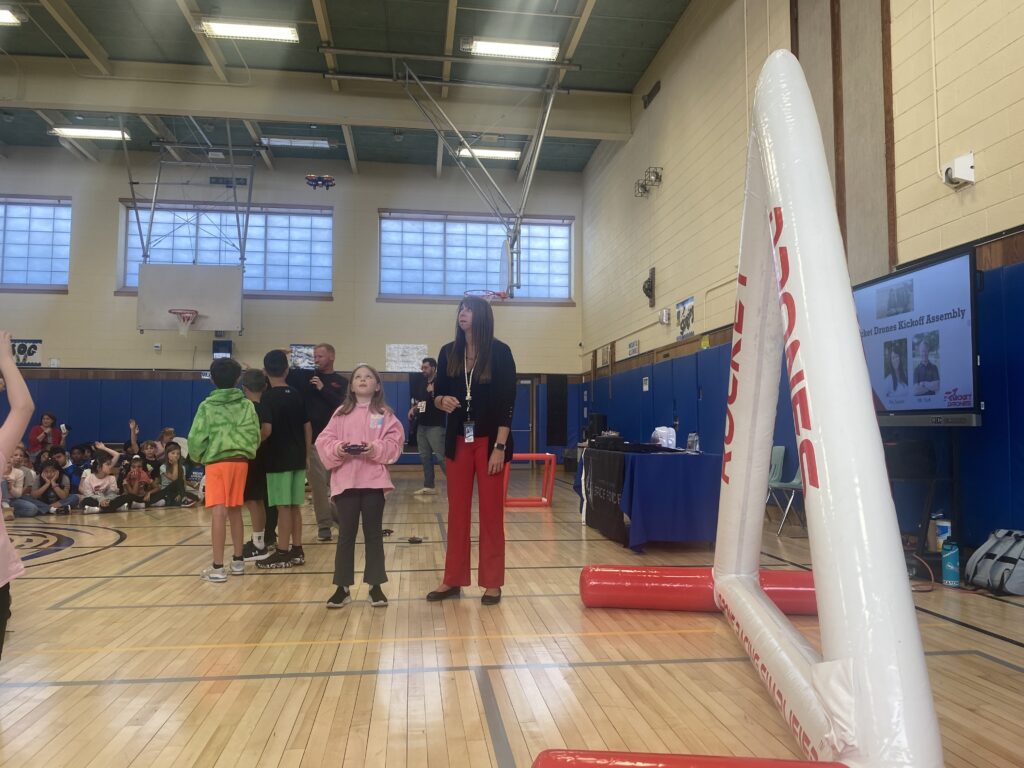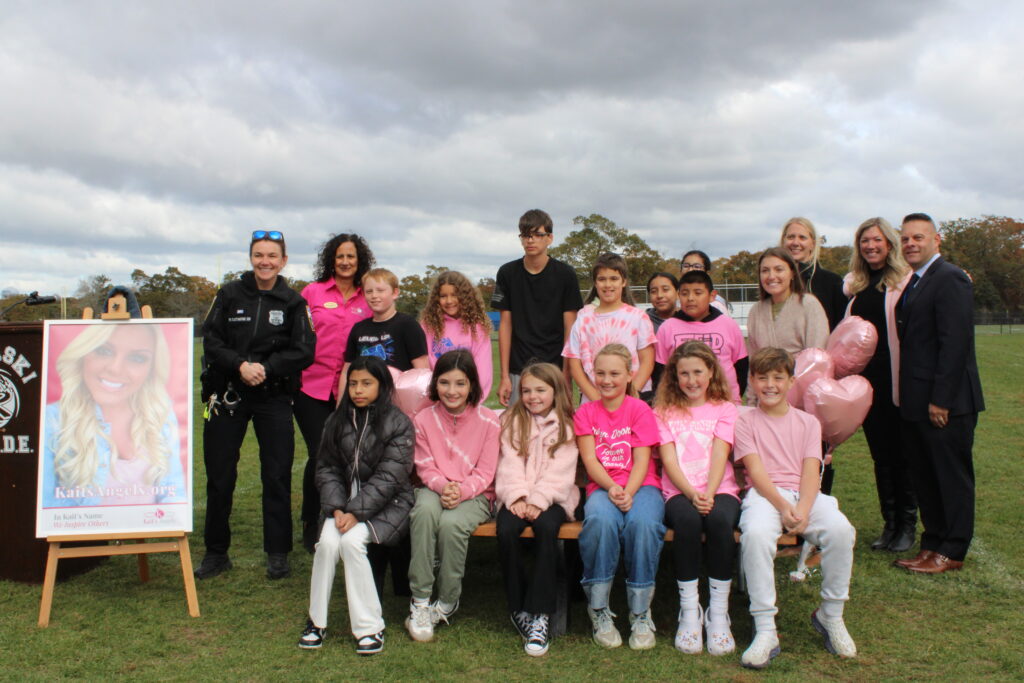Riley Avenue students pilot drones during high-flying assembly

The gymnasium at Riley Avenue Elementary School buzzed with excitement Thursday as third- and fourth-graders kicked off a new year of the school’s drone program with an assembly showcasing how astronauts, photographers and doctors use remote-controlled aircraft.
Fourth-grade volunteers, already in their second year of training, piloted drones around the gym and through an inflatable arch — to the delight of their classmates.
This two-year-old training program uses a curriculum from Rocket Drones of Pensacola, Fla., designed to spark interest in drone technology and aviation careers. Students begin training in third grade, and by age 16 can take the FAA Part 107 exam to become certified drone pilots.
“They’re learning how to fly and learning what career opportunities are coming out for them, which is fantastic,” said Jen Sauter, an educational technology coach with Model Schools at Eastern Suffolk BOCES, who helps administer the drone program. “The goal is to provide them with an introduction to how drones work and teach them their real-world applications, everything from filmmaking to search and rescue.”
Students were asked what chores they would invent a robot to do, and their ideas did not disappoint: making the bed, cleaning up leaves and decorating for special occasions.
Riverhead Central School District was the first in America to join the Rocket Drone program. There are now 250 schools running the curriculum all over the country.
“What’s fun is the young’uns — the jobs they are going to have don’t even exist yet,” said Brandon Turk of Rocket Drones. “We’re trying to get their creative juices [flowing] and say, ‘Hey, what do you want to do? Imagine it, because it’ll come true one day.’ They’re very open-minded.”
Riley Avenue principal Gary Karlson appreciates how the drone program fosters mental adaptability. Students are able to make multiple attempts and continue changing their approach until they succeed.
“They demonstrate a lot of flexible thinking, a lot of collaboration, a lot of multiple attempts, and they don’t view it as failure,” he said. “Some of the traditional curriculum is a little more right and wrong, whereas when they’re working with this technology, I think that that’s probably the biggest way to prepare them for the future is just to be able to demonstrate that flexibility,” said Mr. Karlson.
Ms. Sauter said she hopes to connect this drone training to the aviation program at BOCES to give students a clearer career path.
“We’re looking into how to add that into a CT program because BOCES does have the aviation program right now, and so it would be adding that drone component to that. We are definitely in talks do that,” she said.









